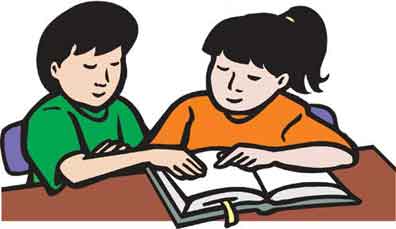Latha Vasu
The Oxford English Dictionary defines language as “human communication through the use of spoken or written words” and “a particular system or style of spoken or written communication”. English, or any other language for that matter, in my view, has to be handled differently from other subjects such as science and mathematics. While teaching these other subjects, attention should be paid to the exposition of various concepts and theories. Language teaching should focus on communication (as highlighted in the definitions above) in the formative years.
Communication forms the essence and purpose of learning any language and this purpose gains main importance when the language also happens to be the medium of instruction.
 So in brief, my expectation from the English language class is that my child should be able to communicate comfortably and confidently in English, which is the medium of instruction at her school. As she learns the other subjects through this medium, such skill will help her a great deal in learning and interpreting the contents of all other subjects.
So in brief, my expectation from the English language class is that my child should be able to communicate comfortably and confidently in English, which is the medium of instruction at her school. As she learns the other subjects through this medium, such skill will help her a great deal in learning and interpreting the contents of all other subjects.
I shall try to record my views, based on my observations of the six years of my daughter’s schooling.
Language skills
By communication, I refer to the following broad skill sets, which would enhance and supplement each other:
- Speaking
- Comprehension
- Reading
- Writing
- Listening
- Thinking
Speaking
My daughter is now in Class IV. She can memorise and repeat flawlessly a lesson even running into a couple of pages, but at times, she gets her English wrong while speaking in general. Here, I am referring to the simple enquiries that she makes or answers that she gives in the course of a classroom talk, or with friends, or at home. The teachers do encourage children to speak in English while at school, However, the children are not trained in informal conversational English. From the lower K.G., children should be taught to speak simple sentences, ask and answer questions concerning themselves, their surroundings, etc., in a natural way. They should be tactfully corrected wherever they go wrong.
While teaching the letters of the English alphabet, there is no focus on the phonetics and pronunciation aspects of the language. As speaking skills are not given due importance, even children in higher classes cannot appreciate the reasons as to why a letter sounds different in different words, or why and where a letter remains silent. They do not learn the correct usage and end up with spelling errors or mispronunciation.
Comprehension
Comprehension is a key skill set, without which the other communication skills cannot develop. Whenever a new word is introduced, its meaning has to be explained clearly. This will help children understand the contents while listening or reading any text and choose the right words while writing, speaking or thinking. As required attention is not being paid to this, it is seen that children use words without knowing their meaning or use wrong words. Eg. To say the book is lean instead of saying the book is thin, desert and dessert, here and hear, lose and loose.
Reading
My daughter says that the majority of her classmates have difficulty in reading aloud a text. While the teacher reads out a lesson, the children are able to follow, but cannot do so by themselves. Adequate time should be allotted in school to develop reading skills by making each student read aloud a few passages. Reading by students as a group could also be tried. This should be supplemented with homework as well, where every week, the teacher can mark out a lesson for reading.
Writing
As with speaking, here too, children easily reproduce contents (verbatim) from their lessons, but face difficulty when asked to write on the same subject in their own words or on any other topic not covered in their classes.
To overcome this, children should be given writing exercises on simple topics and trained to structure the writing in a logical manner and build ideas around a theme. This practice will also enable them to express the concepts learnt in other subjects in their own way.
Neat and legible handwriting is another area where children need to be given more practice and guidance. In my opinion, this aspect is not given due importance.
Listening
Listening is the most difficult area of communication. While listening exercises are given, only a negligible portion of the assessment is based on a listening exercise. I feel more assessments should be carried out through listening exercises to stress the importance of listening skills and develop the habit of attentive listening in children.
Thinking
Clearly, a child’s thinking skills will enable better communication in all aspects. Teachers should stimulate independent and creative thinking among children through appropriate means right from the early years and encourage them to express their thoughts freely and fearlessly. An atmosphere that is open for free exchange of thoughts would greatly boost the child’s confidence and help him/her to think openly. This would also give children the courage to express their thoughts without any shyness or fear.
Introduction to the language aspects
When a language is taught, its structure and elements should be introduced to the children first so that they can understand and appreciate it as an entire system. This kind of methodical approach seems to be missing. After introducing children to vowels and consonants, they are straight away taken to lessons on prose, grammar, poems, literature, with some exercises on listening, etc. Children neither recognise the unique features of each of these divisions nor the differences between them.
Grammar
While grammar lessons are taught covering the various aspects, introduction to grammar seems to be missing. Children learn by heart grammar rules but do not understand what is meant by grammar, why we need to know it or its importance in structuring any content.
Poetry
Children are taught poems while they do not know what is meant by a poem, difference between prose, poetry and literature. Teachers ask children to write poems for the school magazine, whereas, they never guide them on creating a poem during the language class.
Activities
The textbook contains a number of exercises after each lesson relating to sentence formation, completion, group discussions, etc. Likewise, the grammar book contains many exercises. Instead of guiding children through these exercises, the answers are given and copied by the children. This will not help the children understand the concepts and build their skills. On the other hand, children tend to learn by heart answers to the exercises and reproduce the same in exams. If conceptually they are not sound, they cannot apply the same in any new exercise that has not been done before. This also stunts the children’s thinking skills.
Supplementing at home
The need of parents to provide the necessary support in enhancing the above skills at home cannot be over emphasised. Teachers can only lay the foundation at school, which needs to be built strongly with just a little encouragement and assistance from parents and an earnest involvement and attempt by children.
Conclusion
In the early formative years, attention must be given to each of the above areas so that the child progressively learns to easily speak, read, write, listen with attention, think and understand the structure of the language.
Children should be helped extensively through various methods to make them acquire the nuances of various communication skills. The number of lessons may be reduced during the early years, say until, Class III, so that more time is spent towards achieving this end. By this time, the child would have got the required grounding in communication skills, and thereafter he/she can handle the language with great ease and confidence. This will largely reduce the pressure on the child in relation to the other subjects, where, the burden of expressing content will no longer be there and the child’s focus will largely be on understanding the content and learning new words.
The author can be reached at carmelyte@gmail.com.

